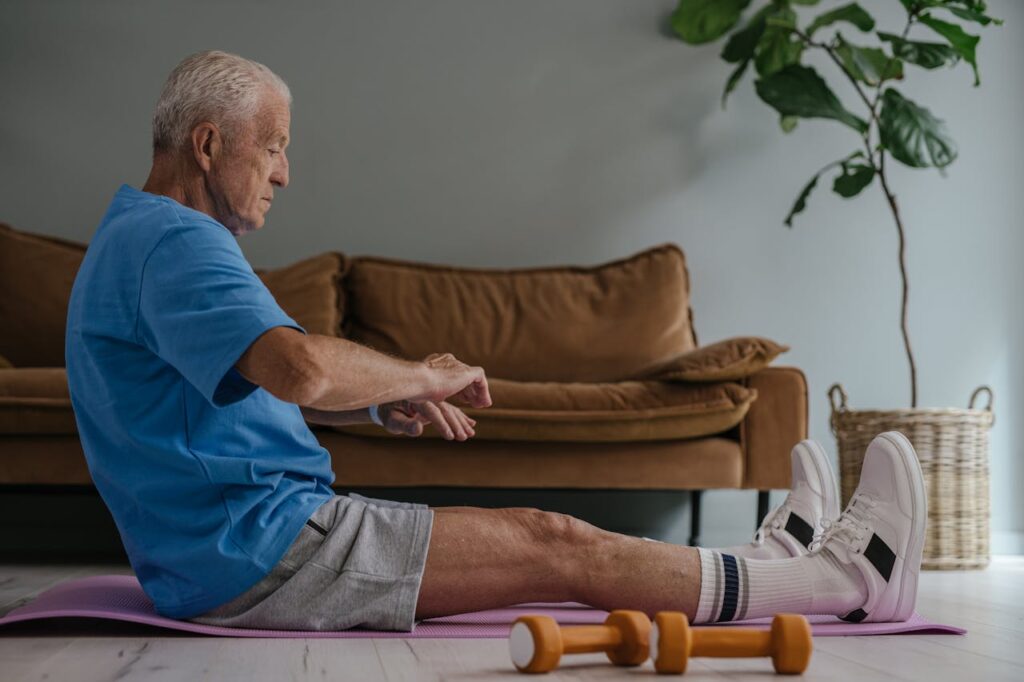However, experts caution that the study does not recommend individuals seeking mental health care to solely rely on lifestyle changes for self-management

A new study suggests that lifestyle therapy, which includes nutritional counselling and physical activity, is as effective as traditional psychotherapy in reducing mild to moderate depression.
Researchers from Deakin University’s Food and Mood Centre have found that dietitians and exercise physiologists could be trained and integrated into the mental health workforce to help address staff shortages.
In the study, 182 individuals with mild to moderate depression were randomly assigned to either lifestyle therapy or cognitive behavioural therapy (CBT). Due to the Covid-19 pandemic, these group sessions were conducted online.
Each lifestyle therapy session was led by a dietitian and an exercise physiologist, who provided evidence-based advice on increasing daily physical activity and improving dietary habits according to a modified Mediterranean diet. Participants were also given a Fitbit to monitor their health.
This is the first large-scale study to indicate that consuming ultra-processed foods and drinks, especially those with artificial sweeteners, may increase the risk of depression.
The other group received CBT, the gold standard in mental health care, delivered by two psychologists. This therapy included techniques to manage unhelpful thoughts and behaviours, and participants were provided with workbooks and self-soothing items like stress balls.
Prof. Adrienne O’Neil, the lead author, stated that both therapies were matched in terms of frequency, duration, setting, and group sizes.
“The only difference was the therapists’ disciplinary backgrounds and the content of the sessions.”
After eight weeks, participants in the lifestyle therapy group saw a 42% reduction in depressive symptoms, compared to a 37% reduction in the psychotherapy group.
The report also included a cost analysis, revealing that the lifestyle program was slightly cheaper to run due to the lower hourly rates of dietitians and exercise physiologists compared to psychologists.
While previous trials have examined the effects of exercise combined with treatments like antidepressant medications, O’Neil noted that this was the first study to assess nutrition therapy integrated with exercise and compare it to CBT.
“Unlike other medical fields such as cardiology, endocrinology, or diabetes care, where lifestyle modifications are fundamental to self-management, they have traditionally been seen as supplementary in mental health and psychiatry,” O’Neil said.
“But with the publication of this trial, we can now be more confident that lifestyle modifications should be central to good psychiatric care.”
She is currently conducting a trial to determine if these interventions have similar effects on individuals with severe mental health conditions.
Scarlett Smout, a research associate at the University of Sydney’s Matilda Centre for Research in Mental Health and Substance Use, pointed out that since the research was conducted during the Covid-19 pandemic, “we would want to see these findings replicated when participants are not under lockdowns or related restrictions.”
The trial sample was relatively small and predominantly female, as noted by the study authors, indicating the need for replication in a larger study, Smout said.
She also emphasized the importance of not making broad generalizations, such as “changing your diet [without expert advice] is just as helpful as seeing a psychologist.”
“Importantly, this study does not suggest that individuals seeking mental health care should self-manage with lifestyle changes alone,” Smout said.
However, Smout, who was not involved in the study, found the findings promising.
“I think the authors’ suggestion that allied health professionals could be upskilled to deliver mental health interventions is exciting, especially given the current strain on the mental health workforce,” Smout said.
“The ideal scenario would be for people to have access to both types of mental healthcare (lifestyle and psychotherapy), rather than one or the other.”
